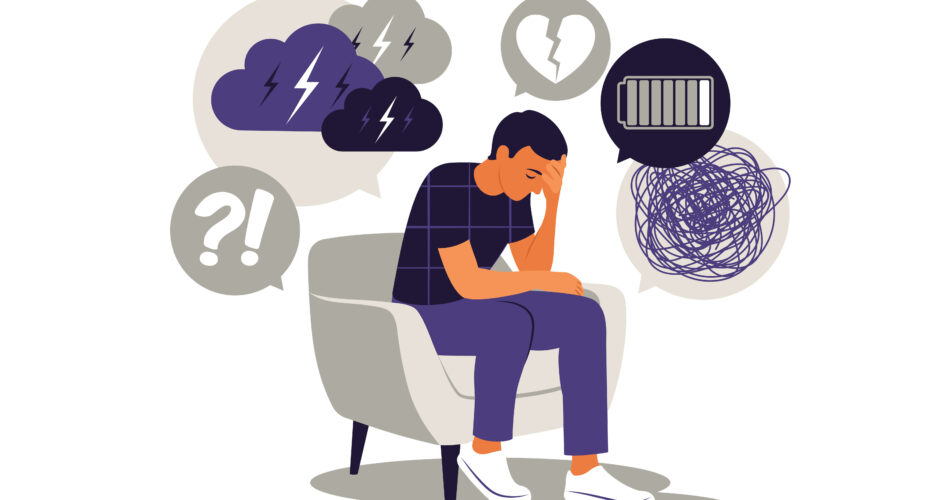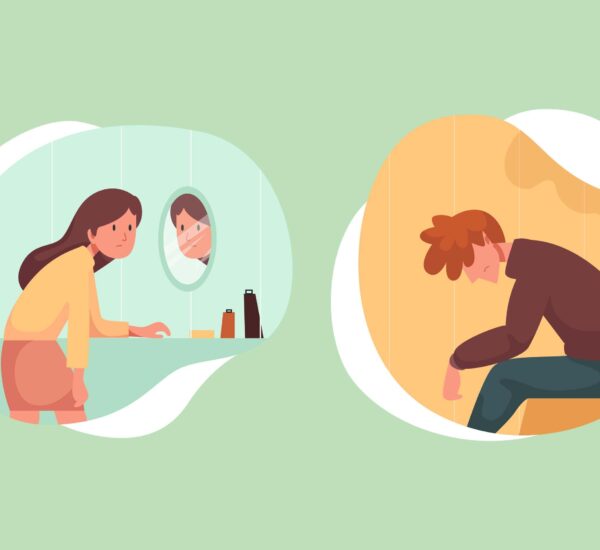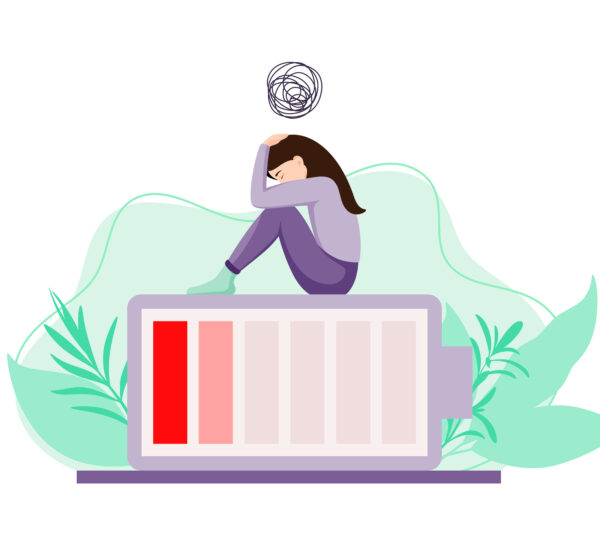Experiencing extreme and constant sadness can be an unfamiliar area for some people to deal with. Due to its complex nature, some people may try to disregard it, which can make the condition worse. One of the possible health conditions that can occur is major depressive disorder, a severe depression.
Managing this kind of mental illness can be challenging, especially for those that don’t understand the specifics. That’s why it is ideal to prevent this progression at all cost, which can happen by understanding how it occurs first. In this blog, we’ll uncover the common reasons why people develop this mental health condition. At the same time, discuss the suitable treatment options. Let’s begin!
What is Major Depressive Disorder

Major depressive disorder, often referred to as clinical depression, is a mental health condition characterized by persistent feelings of sadness and a lack of interest in activities. It goes beyond normal feelings of sadness and can impact how a person thinks, feels, and handles daily activities. Most of the time, the person may have extended negative feelings such as sadness.
When a person has this kind of depressed mood, their situation may vary in severity and duration. Some may experience other depression symptoms such as changes in weight, feelings of worthlessness, or thoughts of death or suicide. Thus, making it an alarming case of mood disorder that patients should address immediately.
Take note that major depression is different from persistent depressive disorder and other types of depression. Knowing their difference is a must to have the right plan for your mental healing. To secure the right treatment, an accurate diagnosis with a doctor must first happen.
How Major Depressive Disorder Affect The Patient’s Life
As mentioned, major depressive disorder is a type of depression that can interfere with various aspects of one’s life. While the emotional aspect is commonly affected, it can result in a major depressive episode that impacts the behavior, sleep, diet, etc. Furthermore, this condition can lead to significant challenges in daily functioning as it can manifest physically, causing fatigue, body aches, and an overall decline in health
In short, the impact extends beyond emotional well-being. In severe cases, major depressive disorder can even lead to suicidal thoughts, emphasizing the critical need for timely intervention and support. Understanding these implications is crucial in approaching treatment and providing holistic care to individuals battling this medical condition.
5 Reasons for Developing Major Depressive Disorder
Suffering from this mental health condition can really result in a setback for the patients and their loved ones. It is a challenging condition that can be tough to manage, especially with its strong impact to the overall health. That’s why it is best to be knowledgeable about what causes the development of this type of depression.
There are several main points that can contribute to the development of this illness. Here are the most common aspects that everyone must take note of for better mental health.

Stress and Trauma Experiences
Individuals developing major depressive disorder often have a history of significant stress and trauma experiences. These events can be pivotal triggers, impacting mental health and leading to the onset of depressive symptoms.
These experiences, that begin during childhood to present, can deeply affect brain chemistry and emotional regulation, contributing to the development of major depressive disorder. The lingering impact of stress and trauma may manifest as persistent feelings of sadness, hopelessness, and worthlessness.
It is best to have timely intervention and recognize these experiences to better manage the situation before it blooms into major depressive disorder.
Life Events
On the other hand, experiencing significant life events such as loss of a loved one, job instability, or relationship issues can contribute to the development of major depressive disorder. These events can trigger feelings of sadness, hopelessness, and despair, leading to the onset of depressive symptoms.
Research shows a strong correlation between stressful life events and the onset of depression. Coping with these challenges can be overwhelming, especially if combined with other risk factors. It’s essential to recognize the impact of life events on mental health and seek timely support to address any emerging symptoms.
Brain Chemistry Imbalance
In terms of the biological aspect of one’s mental health, this condition can also stem from various factors, such as brain chemistry imbalance. In this scenario, neurotransmitters like serotonin and norepinephrine may not function optimally, impacting mood regulation. When these chemical messengers are imbalanced, it can lead to symptoms of depression.
Individuals experiencing such imbalances may benefit from treatments that target neurotransmitter levels. By acknowledging and addressing these chemical imbalances, healthcare providers can formulate effective treatment plans tailored to rebalancing the brain chemistry and enhancing mental well-being.
Chronic Illness
Another possible reason for developing a mental condition like major depressive disorder is the effect of another chronic illness. Dealing with a long-term health condition can lead to feelings of hopelessness and helplessness, which are common in individuals with depression.

Some of the common illnesses that may result in mental illness are the following:
Managing the symptoms and limitations of a chronic illness can be emotionally draining, exacerbating existing mental health challenges. Furthermore, the physical discomfort and lifestyle adjustments that accompany chronic diseases can also impact one’s mood and overall well-being. Seeking support from mental health professionals and developing coping strategies tailored to managing the dual burden of physical and mental health conditions is essential for individuals dealing with chronic illnesses.
Family History
Aside from the neurotransmitter problem, patients may also be a possible candidate for developing major depressive disorder because of family history. In short, genetics may have a way of passing the illness to the next generation, which can happen with this condition.
It is crucial for individuals with a family history of depression to be vigilant about any emerging symptoms. If that happens, it is important to seek support from mental health professionals promptly.
Common Age-Group at Risk for Developing Major Depressive Disorder
The age group most at risk for developing this condition varies, but typically, it often emerges during late adolescence to mid-20s. This stage of life is marked by significant life transitions, societal pressures, and identity formation, all of which can contribute to the onset of depression in vulnerable individuals.
Additionally, older adults may also be at risk due to factors like loneliness, health issues, or loss of loved ones. This stage where their immune system and changes in physical capabilities can be the possible source of them developing this type of mental condition.
Despite having a wide range of age groups that may possibly experience this condition, patients must not forget about early intervention. Recognizing the signs and symptoms early on and seeking timely intervention is crucial in managing major depressive disorder effectively. That’s why if you know someone who belongs to these age-groups, it’s best to help them out by encouraging them to seek help when necessary.
When to Seek Help From A Doctor

Whether it is a mental health condition or a chronic illness that can affect other organs, it is important to prioritize early intervention. With the possible threats that we’ve discussed earlier, it only shows the severe effect of the condition to one’s overall health.
If you suspect that your situation might involve the development of major depressive disorder, it is best to seek help immediately. By seeking help promptly, individuals can access appropriate treatment and support to address the underlying causes and improve their mental well-being. Remember, you are not alone, and help is available.
Treatment Approaches for Major Depressive Disorder
When it comes to treating major depressive disorder, there are several approaches to consider. These approaches can be used individually or in combination, depending on the severity of the individual’s symptoms and their personal preferences. By working with a healthcare professional, individuals can develop a personalized treatment plan that addresses their specific needs and goals.
Here are the possible treatment options:
Medication Options

Medication is often a key component of the treatment plan for major depressive disorder. There are several types of antidepressant medications that can be prescribed to help manage the symptom. These medications work by balancing brain chemicals that are involved in regulating mood.
Some common types of antidepressants include:
- selective serotonin reuptake inhibitors (SSRIs)
- tricyclic antidepressants
- monoamine oxidase inhibitors (MAOIs)
It’s important to note that each medication comes with its own set of potential side effects, which can vary from person to person. Common side effects include nausea, drowsiness, and sexual dysfunction. Individuals are encouraged to work closely with their healthcare provider to find the medication that is most effective for them, while also managing any potential side effects.
Psychotherapy and Counseling

Meanwhile, another effective way of mental treatment is through psychotherapy, also known as talk therapy. There are several types of psychotherapy that have been shown to be effective in managing this type of depression, including cognitive behavioral therapy (CBT) and interpersonal.
In CBT, individuals work with a therapist to identify and change negative thought patterns and behaviors that contribute to their depression. This type of therapy helps individuals develop healthier coping strategies and improve their overall well-being. Interpersonal therapy focuses on improving interpersonal relationships and addressing any conflicts or difficulties that may be contributing to the individual’s depression.
Working with a therapist or counselor can provide individuals with a safe and supportive space to explore their thoughts and feelings, develop coping skills, and develop a personalized treatment plan that addresses their unique needs.
Lifestyle Changes and Self-Care Measures

In addition to medication and therapy, making lifestyle changes and practicing self-care can play a significant role in managing major depressive disorder. By making healthy choices and prioritizing self-care, individuals can support their mental health and overall well-being. Some key lifestyle changes and self-care measures that can be beneficial for with MDD include:
- Following a balanced diet and getting regular exercise, as these can help improve mood and overall wellness.
- Practicing mindfulness and stress reduction techniques, such as meditation or deep breathing exercises, to help manage stress and promote relaxation.
- Seeking support from friends, family, or support groups, as social connections can be important for emotional well-being.
- Engaging in activities that bring joy and pleasure, such as hobbies or creative pursuits.
- Prioritizing sleep and establishing a regular sleep routine, as getting enough quality sleep is crucial for mental health.
By incorporating these lifestyle changes and self-care measures into their daily routine, individuals with MDD can support their treatment plan and improve their overall quality of life.
Conclusion
Prioritizing one’s mental health is a challenging aspect, especially if there are gray areas due to the ongoing stigma about mental health conditions. Through understanding the common reasons behind the development of major depressive disorder, patients can have a better understanding of their situation.
If you have developed this mental health condition, it is important to have a solid support system. Family members and a health doctor can provide the proper guidance that you may need when facing the threats from this condition.
Major Depressive Disorder Quiz
Test what you’ve learned from the article



